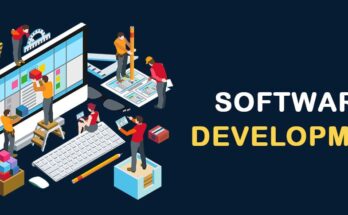About the Article: “Exploring Emerging Technologies Shaping the Future”
The world of technology has always been evolving, but over the last few decades, we’ve witnessed a profound acceleration in advancements. From the rise of the internet to breakthroughs in artificial intelligence, blockchain, and quantum computing, these innovations are fundamentally altering the way we live, work, and communicate. The article delves deep into these emerging technologies, offering insights into how they’re shaping various industries and our daily lives.
A Rapidly Evolving Landscape
The 21st century has been marked by technological revolutions that seem almost beyond imagination. With the advent of smartphones, the Internet of Things (IoT), virtual and augmented reality, and machine learning, we’ve come to expect continuous improvements in speed, convenience, and efficiency. However, what lies ahead promises to be even more extraordinary. Technologies such as 5G connectivity, biotechnology, and nanotechnology are pushing the boundaries of what we thought possible.
This article provides a comprehensive overview of some of the most influential technologies that are expected to define the next several decades. While discussing these technologies, the piece also examines the ethical considerations, potential challenges, and the societal impacts that accompany their rapid integration into the global infrastructure.
Artificial Intelligence and Machine Learning
AI and machine learning (ML) have been at the forefront of technological advancements in recent years. These technologies have already transformed industries such as healthcare, finance, and entertainment. AI-powered applications like personal assistants, recommendation engines, and image recognition systems are now commonplace. However, the true potential of AI lies in its ability to solve complex problems, make predictions, and optimize operations in ways humans simply can’t replicate.
In the healthcare sector, AI is being used to analyze patient data, provide personalized treatment options, and even assist in early diagnoses. Similarly, in the finance industry, AI is helping to detect fraudulent activity, automate trades, and optimize investment strategies. This article goes into detail about the various applications of AI, while also discussing the ethical dilemmas surrounding privacy, data security, and the potential for job displacement.
Quantum Computing
Quantum computing is a groundbreaking field that promises to revolutionize computing power. Unlike classical computers, which process information in binary bits (0s and 1s), quantum computers use qubits that can represent multiple states simultaneously due to the principles of superposition and entanglement. This allows quantum computers to solve certain types of problems exponentially faster than traditional machines.
Although quantum computing is still in its infancy, it has the potential to solve some of the most complex problems in fields like cryptography, material science, and drug discovery. The article explores the current state of quantum computing, highlighting key players in the industry, as well as the challenges researchers face in making quantum machines stable and scalable.
Blockchain and Cryptocurrencies
Blockchain technology, originally developed for cryptocurrencies like Bitcoin, has found applications far beyond digital currencies. Blockchain’s decentralized nature allows for secure, transparent transactions without the need for a central authority. This has the potential to disrupt industries such as banking, supply chain management, and even voting systems.
The article provides an in-depth look at how blockchain works, its advantages, and its limitations. It also examines the rise of decentralized finance (DeFi) and the potential implications of widespread blockchain adoption. Cryptocurrencies, which have garnered significant attention in recent years, are explored in the context of their role in the global economy and their potential to revolutionize traditional financial systems.
5G and Beyond: The Future of Connectivity
As the world becomes increasingly interconnected, the demand for faster and more reliable internet has never been higher. The rollout of 5G networks promises to deliver data speeds that are up to 100 times faster than 4G, enabling real-time communication and the seamless integration of IoT devices. This is particularly important for industries like autonomous vehicles, smart cities, and remote healthcare.
The article delves into the technology behind 5G, how it differs from previous generations of mobile networks, and its potential to unlock new possibilities for industries around the world. It also considers the environmental impact of widespread 5G adoption, as well as the ongoing debates surrounding its safety and privacy concerns.
Biotechnology and Genetic Engineering
Biotechnology is another field experiencing rapid growth, with advancements in genetic engineering, CRISPR technology, and personalized medicine. These innovations hold the promise of revolutionizing healthcare, enabling the development of treatments tailored to an individual’s genetic makeup. Furthermore, biotechnology has the potential to address some of the world’s most pressing challenges, such as food shortages and environmental sustainability.
In this article, the reader is introduced to the world of genetic engineering, including its applications in medicine, agriculture, and environmental conservation. The ethical implications of gene editing, particularly with regard to its use in humans, are also discussed, providing a nuanced perspective on the promise and risks of biotechnology.
The Internet of Things (IoT)
The Internet of Things (IoT) refers to the network of connected devices that can communicate with each other and exchange data. This includes everything from smart home devices like thermostats and security cameras to industrial machines and wearable health trackers. The IoT has the potential to make everyday life more convenient, efficient, and sustainable by automating routine tasks and providing real-time insights.
The article examines the various applications of IoT, including smart cities, healthcare monitoring, and agriculture. It also considers the challenges associated with IoT, such as cybersecurity risks, data privacy concerns, and the need for better infrastructure to support the growing number of connected devices.
The Future of Work: Automation and Robotics
Automation and robotics are transforming industries around the world. From self-checkout kiosks to fully automated manufacturing lines, robots and machines are taking over tasks that were once performed by humans. While this has led to greater efficiency and cost savings, it has also raised concerns about job displacement and the future of work.
In this article, automation is explored from multiple angles, including its impact on manufacturing, logistics, and service industries. The rise of collaborative robots (cobots) that work alongside humans is also discussed, offering a glimpse into the future of work where machines and humans can work together more seamlessly.
Conclusion
In conclusion, emerging technologies are reshaping every aspect of our world. While the opportunities they present are immense, they also come with significant challenges that must be addressed. The article not only explores these technologies in detail but also provides insights into their potential to transform industries, improve lives, and raise important ethical questions.
As we continue to push the boundaries of innovation, it is crucial to consider the broader societal impacts of these technologies. By understanding their capabilities, limitations, and implications, we can ensure that we harness these advancements in a way that benefits humanity as a whole. The future is bright, but it will require careful thought, collaboration, and responsible development to navigate the ever-changing landscape of technology.



